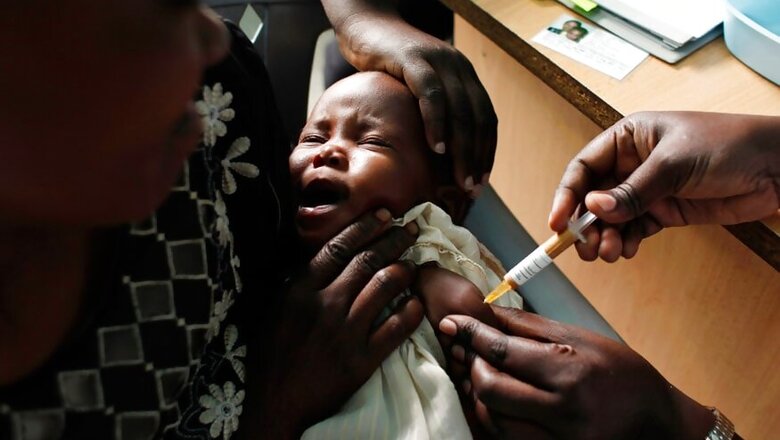
views
Mosquitoes, One of the deadliest animals in the world, are able to carry and spread disease to humans -- causing millions of deaths every year. According to a World Health Organization (WHO), the 2015, malaria alone caused 438,000 deaths. The last three decades has seen a 30-fold rise in the worldwide incidence of dengue and more and more countries are reporting the outbreaks of the mosquito-borne disease.
Mosquito-borne diseases like zika, dengue, chikungunya and yellow fever are all transmitted to humans by the. Aedes aegypti mosquito
With such high incidences of mosquito-borne diseases plaguing countries around the world, scientists have been looking for immune system factors that might help mosquitoes ward off pathogens such as malarial parasites and indirectly protect humans from infection. According to study authors from Yale, editing one single gene, which turns out to be crucial for female reproduction, could go a long way in protecting people from mosquito-borne diseases.
Researchers from Erol Fikrig's lab, edited out a gene suspected of suppressing the mosquito immune system in females of the species Anopheles. Firkig is the Waldemar Von Zedtwitz Professor of Medicine (infectious diseases) and professor of epidemiology and of microbial pathogenesis.
For the study, the researchers tried to determine whether mosquito gamma-interferon–inducible lysosomal thiol reductase (mosGILT) influences Plasmodium within the mosquito and found that it causes defects in the ovaries of the mosquito, resulting in significantly reduced oocyst numbers.
Following the research, they found that the reproductive systems of the mutant mosquitoes were severely disrupted and the level of parasites that cause malaria was dramatically reduced.
The research was reported in the Journal of Experimental Medicine.
Speaking about the same, Fikrig said that when a mosquito does not have functional ovaries, the parasites that cause malaria will not survive, adding that if one understands how malaria interacts with a mosquito, they can perhaps interfere with the process.















Comments
0 comment